- Home
- Brandon Sanderson
White Sand, Volume 1 Page 16
White Sand, Volume 1 Read online
Page 16
Soon, he topped a small hill, and his eyes fell on the Diem itself. He paused for a moment, despite his anxiety, to stare at the building that he had called home for the last eight years. Large and fortress-like, the building that was the Diem seemed to be part of sand surrounding it. And, in reality, such wasn’t far from the truth.
The building was an enigma—it was older than the sand masters, or, at least, their formal organization. It had been formed from a single, enormous block of white sandstone. Yet, unlike normal sandstone, the Diem’s walls and floors could not be chipped or worn away. It was permanent, eternal.
Kenton stood, the ever-present wind ruffled his robes, bringing with it the familiar scents of Kershtian cooking and lakewater. The sun sat about twenty degrees down from the apex, resting in its familiar place, the place that felt right. The sand masters’s power, like the building before him, had seemed eternal. They had been broken, betrayed and destroyed through the warping of their own powers. It was possible that not a single one of them had … .
Kenton stopped, forcing himself not to think of such a possibility. Others had survived. The thought firmly in his mind, he descended toward the block-like Diem. He walked straight up the road toward its front, striding up its sandstone steps and through the doorless gate.
As soon as he entered, his resolve wavered slightly. The Diem was silent. He stood in the entry hall, a massive, open room that stretched up for two stories. The room was bright—besides the inner hallways, there wasn’t a place in the Diem that didn’t have windows. But, for some reason, it felt dark.
Rich tapestries swung on the walls, giving way before the wind. The room’s only sound was that of the long pieces of cloth slapping against the stone walls. Paintings watched him. The murals on the back wall, depictions of Lossand’s eight Professions, seemed faded and subdued. The ground, like all of the Diem’s floors, was covered with a few inches of white sand.
Kenton shivered. The entry chamber was the Diem’s main entryway; it had always been busy. Whether it had been acolents running toward their rooms, or undermastrells yelling for them to act properly, the entry chamber was a place for meeting and socializing. With thousands of Diem members, there was always at least someone there.
And now it was empty. Kenton took a step forward, walking tentatively, as if he were on deep sand. Then he moved more quickly, more urgently, if only to make more noise himself. Beyond the entry chamber he entered the dark inner hallway. Unlit lamps lined the walls, but several open chamber doors provided some light.
The inner hallway extended tunnel-like in either direction, the occasional open door lending it a ghostly, quiet light. The hallway circled the rectangular perimeter of the Diem. From it, one could reach every room on the ground floor—the Diem’s center was a large open courtyard.
The hallway should have been lit. It was the main area of traffic in the building. Now alarmed, Kenton chose a direction and began to stride down the hallway, throwing open doors as he moved. He passed the large conference room that sat behind the entry chamber and moved on to the smaller rooms that lined the hallway on both sides. He exposed living chambers and classrooms alike, each one empty.
Kenton searched frantically, calling out as he worked. Eventually, he found himself back where he had begun—he had traveled the entire perimeter of the Diem.
Stupefied, he wandered back into the entry hall. It was true—the Diem was empty. He couldn’t know for certain, of course, for he couldn’t check the two upper stories. The Diem had no stairs—those who didn’t have sand mastering ability couldn’t visit the chambers of the mastrells and other high-ranking sand masters.
Still, Kenton knew that even if he could get up to those floors, he would find the rooms empty. His yell-accompanied searching had been loud; they would have heard him. He had even stuck his head into the inner courtyard and called out for an answer. There had been none.
He was the last sand master. The possibility that he had forced himself not to consider had occurred. What would he do? Could the Diem continue with one member?
Kenton slumped against a sandstone wall, letting himself slide down to the floor. He stared forward sightlessly, disbelievingly. How many times had he wished that he didn’t have to deal with the mastrells? How many times had he speculated about how much could be done for the Diem if the old leadership were gone? He had fought them for eight years, but now there was no one left to fight.
No one to tell him he wasn’t good enough. No one to snicker behind his back as he passed. No one to impress with how much he could do with a single ribbon. No one to meet for lunch, to talk about how far they had come. No one to be his friend, despite their difference in ranks. No brothers left, spiteful or encouraging.
Kenton’s head fell to his hands. What would he do now?
“Kenton?” a hesitant voice asked.
Kenton looked up with shock, bumping his head against the wall behind him. Standing in the large gateway was a familiar form.
“Dirin?” Kenton asked with amazement.
The flame-haired boy rushed into the room. He wore his sand master’s robes and the white sash of an acolent.
“Kenton, you’re alive!” the boy exclaimed. “We thought for certain that—”
“We?” Kenton interrupted. “There are others?”
Dirin paused. “Well, yes. Of course. Oh, but you wouldn’t know, would you?”
Kenton leapt to his feet. “Where, Dirin? Where is everyone?”
“At the Hall,” Dirin explained, examining Kenton’s face with a frown. “Are you all right?”
“The Hall of Judgement?” Kenton asked. “Why?”
“The Taishin have met, Kenton,” Dirin explained. “They need to ratify a new Lord Mastrell.”
“A new Lord Mastrell …” Kenton said, his eyes opening wide. “Who?”
But somehow he already knew the answer.
“Drile,” Dirin replied.
Kenton cursed. “Come on,” he said, moving to rush out of the Diem.
“Wait,” Dirin requested. The boy rushed away, then returned a few moments later, a golden sash from the supply room in his hands. “Terr sent me to get this,” he explained sheepishly. “We’re going to give it to Drile when he leaves the Hall. It wouldn’t be right for the Lord Mastrell not to have one.”
Kenton frowned. “You won’t need it,” he informed.
#
“None of the mastrells survived,” Dirin explained, speaking with the excitement of a youth with news to tell. “Except maybe Drile, who isn’t quite a mastrell anymore.”
Kenton nodded, hurrying through the small riverside town. They needed to get a boat to Kezare as quickly as possible. “How did you survive?” he asked.
Dirin shrugged. “I don’t know, really. After the Lord Mastrell’s final attack, the Kershtians only fired a few more arrows, then retreated. Most of them ignored the acolents—over half of us survived. The higher, ranks, though … .”
“They must have known which sash colors to aim for,” Kenton assumed as they walked onto the docks. “Wait here.”
A boatman, a Lossandin man with dark enough hair that he might have had some Kershtian blood in him, approached as Kenton strode forward. “We need passage,” Kenton explained. “As quickly as possible.”
“Two lak,” the man said, “and I’ll have you there in less than five degrees.”
Kenton froze. He had given all of the money to Khriss and the others, assuming he wouldn’t need it once he returned to the Diem.
“I …” Kenton trailed off.
“No money?” the man assumed with a snort, turning.
Kenton watched him go. Always before, he had been able to request money from the Diem for whatever expenses he had. What did he do if there was no one to distribute money?
Then, reaching down to his belt, Kenton realized something. “Wait!” he exclaimed.
The man turned, and Kenton pulled out the golden mastrell’s sash. The man’s eyes opened wide, then immedi
ately turned down toward the ground, and he fell to one knee. “KeemTo!” he said, the Kershtian word for ‘master.’ “I did not know … I mean, I thought you were all …”
Murmurs came from all around him as other dock patrons and workers saw the golden sash. Everywhere Kenton looked, people averted their eyes, some bowing, others scurrying away, and more than a few making Kershtian wardings against evil with their hands. Kenton watched it all with a measure of shock—people had been suspicious of him when he was an acolent, but he had never received a reaction such as this. Mastrells rarely left the Diem, and when they did they traveled by carriage—Kenton hadn’t realized what an effect the golden sash would have on those around him.
The dockman remained kneeling before him, sweat on his brow, his arms shaking slightly.
“I still need passage,” Kenton said slowly.
“Yes, KeemTo. Immediately.” The man hopped up, running over to a small boat.
Kenton followed more slowly, allowing Dirin to catch up. There was surprise on the boy’s face. “Kenton, you … . I mean, why?”
“Why what?” Kenton asked, climbing on the boat.
Dirin regarded the dockman with careful eyes, then continued in a low voice. “Why imitate a mastrell? You know the punishment for that? I mean, I know you want to get to Kezare . . .” the boy trailed of with a blush, as if he had gone too far in his accusation.
“Imitating … ?” Kenton asked as the dockman moved them out onto the lake and began to row for Kezare. “Dirin, the Lord Mastrell himself gave me this sash right before the attack. Weren’t you paying attention?”
Dirin lowered his eyes sheepishly. “Of course I was, Kenton, but … well, you wouldn’t know, because you always walk right up to the front. The rest of us can’t do that. It’s very hard to hear in the back—the lower ranks never know what’s happening up front. Most of us are short enough that we can’t even see. I heard that you’d … picked up Drile’s sash and taken it for yourself, but no one actually thought, I mean, the Lord Mastrell said he would never …”
Kenton sat dumbfounded on the boat’s wooden plank, thinking back to the events right before the Kershtian attack. The last days had been so chaotic that it was hard to remember—he knew that Praxton had told him to pick up the sash, but had he ever announced Kenton’s advancement to the rest of the Diem?
“Dirin, who besides students survived the attack?”
“Some underfens, a couple dozen fens, and fourteen Diemfens.”
Too low, Kenton realized. All of them would be so far back that they wouldn’t have been able to see or hear. I was advanced, but there’s no one alive who can prove it.
“Oh,” Dirin added. “I almost forgot—Elorin survived too, but …”
“Elorin?” Kenton asked with excitement. “He was there, up at the front!”
“Yes,” Dirin agreed. “But, well … he isn’t here.”
“Why not?” Kenton demanded. “He should be leading the Diem! He’s the highest ranking sand master left.”
“He’s not a sand master anymore,” Dirin said softly. “He overmastered like everyone who died, but his powers were burned away. He can’t even master a single ribbon.”
Kenton grew cold. “Elorin, burned out?”
Dirin nodded. “He was the one who organized the refugees and led us back to Kezare, but once he got here, he left. He said the sight of the Diem was too much for him, now that he …”
Kenton closed his eyes, shaking his head. Only a few hours before he had assumed such would be his own fate—he knew well the despair that came from losing one’s ability to master sand. He probably would have done what Elorin did, had things remained unchanged. Except, for some reason his powers had returned. Why?
The boat pulled into dock, and the dockman hopped out, quickly tying the moorings. He then bowed subserviently as Kenton and Dirin climbed out. He demanded no payment, but instead boarded his vessel in silence. Kenton noticed a look of relief on his face as he rowed away from the city. Relief, and something else, something carefully hidden. Resentment.
“Come on,” Kenton said, watching the dockman with distracted eyes. “We need to get to the Hall of Judgement.”
#
The Hall of Judgement was a massive pyramidal structure. Cut from dark black marble, it was the organizational center for Lossand’s trackts and judges, much in the same way that the Diem headquartered the sand masters. There was a massive crowd around its front steps, many of them wearing the white robes of sand mastery. The people spoke with hushed voices, and even from a distance Kenton could feel their anxiety. The selection of a new Taisha—leader of one of Lossand’s eight Professions—was a very important event, especially when that Taisha was the Lord Mastrell.
Kenton hung back from the crowd, waiting in the half-shadows beside an earthen building. He leaned against the hardened clay, feeling oddly hesitant after his rush to arrive. The crowd was packed so thickly that it would be difficult, if not impossible, to push his way through. Of course, there was one easy way to force them apart—few people would stand in the way of a mastrell.
He had put the golden sash away after leaving the docks. The people’s reactions had made him uncomfortable—in all his years of seeking the golden sash, he had never associated it with the power that most sand masters probably coveted. He had wanted to be a mastrell primarily to prove his father wrong. Now that he had it, he was seriously considering throwing it away.
He could do it. No one alive had heard Praxton advance him. Others might call him a fool for doing so, but Kenton had seen the faces of the sand masters who had been at the front of the crowd. He had felt their envy, and their indignation. He didn’t deserve the sash, and they all knew it.
“Kenton?” Dirin asked, his voice confused. The young acolent stood beside him in the alley. “Are we going to go forward?”
“I …” Kenton paused. “I don’t know,” he admitted.
“But, you have to stop him!”
“Who?” Kenton asked.
“Drile!” Dirin explained. “They’re going to make him Lord Mastrell. He’s in there now—he’s the only one the Taishin let in.”
“Maybe Drile should be Lord Mastrell,” Kenton mumbled. “He is the most powerful, after all.”
“But—”
Kenton held up a hand to cut the boy off. “I didn’t mean it,” he said with a shake of his head. “Trust me, I know Drile far better than you. We were acolents together. He’ll make a despot of a Lord Mastrell—I couldn’t think of a worse choice, no matter how powerful he is. The problem is, I don’t see what we can do about it.”
“But, Kenton,” Dirin began, “you’re a mastrell. You should be Lord Mastrell.”
Kenton frowned. “I thought you didn’t believe me,” he said.
Dirin looked up, his eyes wide and honest, like always. “I didn’t hear Lord Praxton advance you, but I believe you. If you said he gave you the sash, then he did. Besides, anyone would be better than Drile.”
Kenton looked down at the acolent’s encouraging eyes. Sometimes the boy was so optimistic it was sickening. Kenton shook his head, looking back at the mass of people before the Hall. Most of them weren’t as ingenuous as Dirin—would they believe him? Probably not. Kenton had too much of a history of being a rebel to have any credibility. Besides, did he really want them all to treat him like the Lord Mastrell? They would fear him, and hate him, him even more than if he were just a simple mastrell.
“No,” he said quietly. “Dirin, I don’t deserve this sash. Praxton gave it to me out of spite, not because he thought I should be a mastrell.”
“You deserve it,” Dirin countered. “Kenton, you always said you worked harder, did more with what you had, than any other sand master. You said that should measure who became a mastrell and who didn’t.”
Kenton shook his head. “I lied, Dirin,” he said frankly. “I didn’t fight to be a mastrell because I thought I deserved it, I did so to spite my father. I knew it would embarrass h
im. That’s why I kept turning down his advancement offers, not because of any moral belief.”
Dirin fell silent. Kenton turned away from the Hall, stepping quietly down the alleyway, walking away. He had fought and won, but only now did he realize that he had been fighting the wrong battle.
“I almost left the Diem, you know,” Dirin said. He spoke quietly, as if speaking to himself. “I was so weak, and everyone else so strong. I could barely make sand glow—let alone move it around. I always thought, what good will I be? I’m useless.”
Kenton paused in the shadows, brick walls on either side of him. He didn’t turn around, but he didn’t keep going either.
“I’m still an acolent,” Dirin continued, his voice almost a whisper. “I’m sixteen. Do you know that, Kenton? Do you know how old I am? I know I don’t look like it—Talloners are short. I guess that makes it easier for everyone to ignore the fact that I should have been offered a sash two years ago.”
Kenton closed his eyes. He had wondered, on occasion, why Dirin was still an acolent, but he hadn’t ever asked. The boy had never been called up for advancement.
“I don’t think Praxton was ever planning on giving me a sash,” Dirin explained. “He tried to forget about me. I can barely make sand glow. Even after all these years, I can barely do anything. I’m the weakest sand master who ever lived. At times, I got so depressed that a nearly gave up. I nearly left the Diem on a dozen separate occasions.”
Dirin paused. In a moment, he finally continued. “But, every time I thought that, I would see you. Here was a sand master barely more powerful than I, but somehow he has managed to become the focus of everyone’s attention. He does things even mastrells can’t do, and he speaks back to the upper ranks with pride, despite his apparent lack of strength. Everyone in the Diem respects you, even those who hate you. I would see you, struggling on despite everything and everyone, and I would feel that, perhaps, I could keep going too.”
Kenton lowered his head, raising one hand to feel the sand and clay brick beside him. “I’m not what you think I am, Dirin,” he said, memories of his harshness to Khriss fresh in his memory.

 Steelheart
Steelheart The Rithmatist
The Rithmatist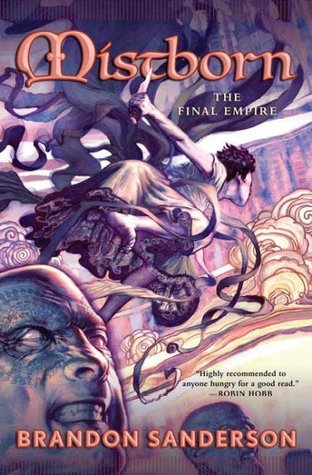 Mistborn: The Final Empire
Mistborn: The Final Empire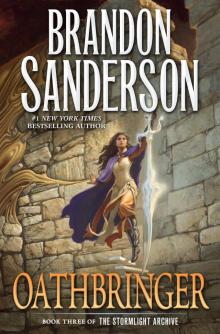 Oathbringer
Oathbringer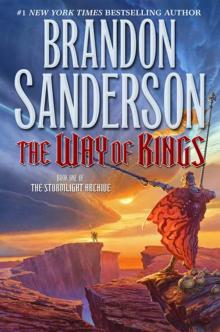 The Way of Kings
The Way of Kings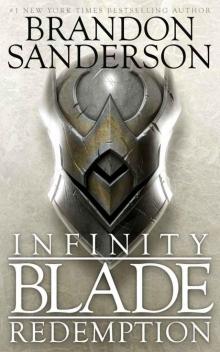 Redemption
Redemption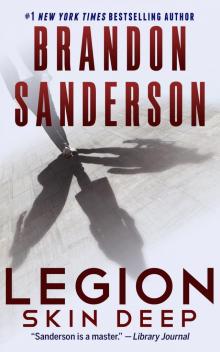 Skin Deep
Skin Deep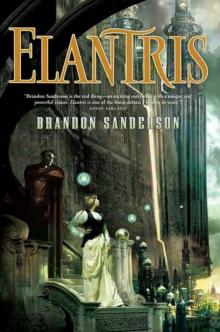 Elantris
Elantris Snapshot
Snapshot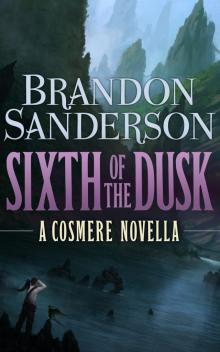 Sixth of the Dusk (Cosmere)
Sixth of the Dusk (Cosmere)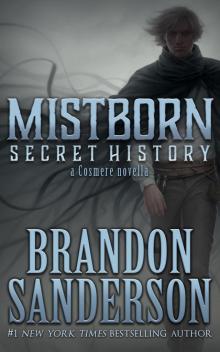 Mistborn: Secret History
Mistborn: Secret History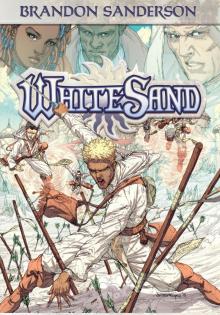 White Sand, Volume 1
White Sand, Volume 1 Legion
Legion The Well of Ascension
The Well of Ascension The Bands of Mourning
The Bands of Mourning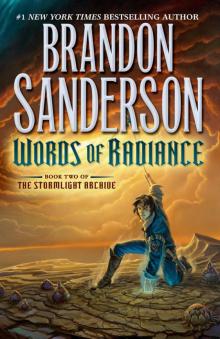 Words of Radiance
Words of Radiance The Hero of Ages
The Hero of Ages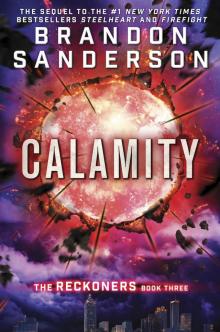 Calamity
Calamity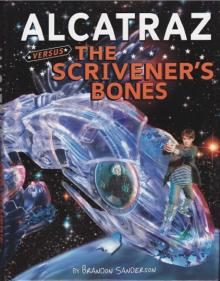 Alcatraz Versus the Scrivener's Bones
Alcatraz Versus the Scrivener's Bones The Alloy of Law
The Alloy of Law The Emperors Soul
The Emperors Soul The Dark Talent
The Dark Talent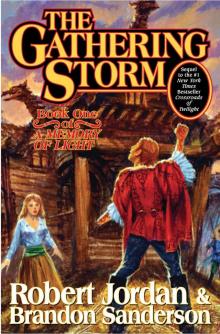 The Gathering Storm
The Gathering Storm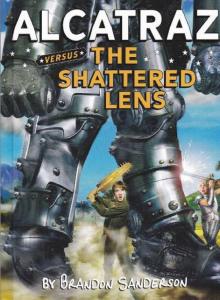 Alcatraz Versus the Shattered Lens
Alcatraz Versus the Shattered Lens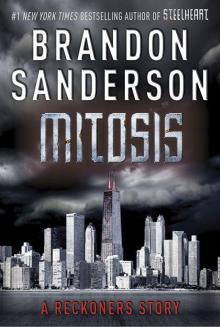 Mitosis
Mitosis Alcatraz vs. The Evil Librarians
Alcatraz vs. The Evil Librarians Rhythm of War (9781429952040)
Rhythm of War (9781429952040)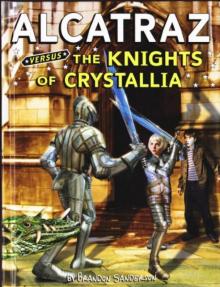 Alcatraz Versus the Knights of Crystallia
Alcatraz Versus the Knights of Crystallia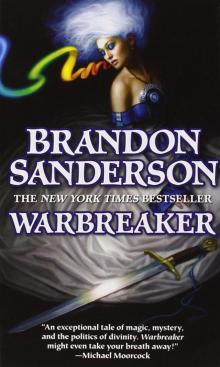 Warbreaker
Warbreaker Firstborn
Firstborn Starsight
Starsight Edgedancer
Edgedancer Perfect State
Perfect State Shadows of Self
Shadows of Self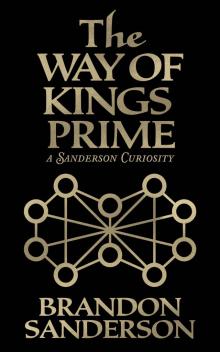 The Way of Kings Prime
The Way of Kings Prime Starsight (US)
Starsight (US) Shadows for Silence in the Forests of Hell
Shadows for Silence in the Forests of Hell Arcanum Unbounded: The Cosmere Collection
Arcanum Unbounded: The Cosmere Collection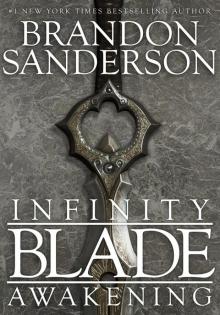 Awakening
Awakening Firefight
Firefight Dawnshard
Dawnshard Defending Elysium
Defending Elysium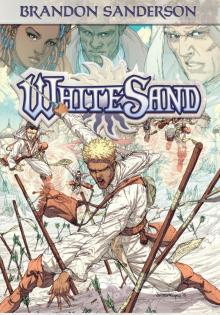 White Sand
White Sand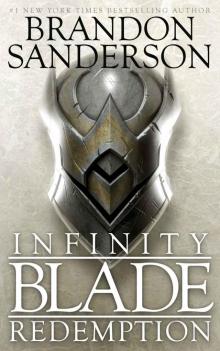 Infinity Blade: Redemption
Infinity Blade: Redemption The Final Empire
The Final Empire Skyward
Skyward Lies of the Beholder
Lies of the Beholder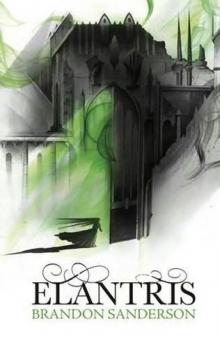 Elantris e-1
Elantris e-1 Steelheart r-1
Steelheart r-1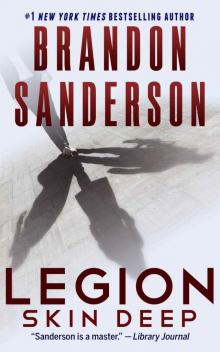 Legion: Skin Deep
Legion: Skin Deep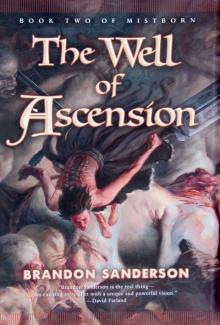 Well of Ascension
Well of Ascension Mistborn
Mistborn Alcatraz versus the Evil Librarians
Alcatraz versus the Evil Librarians The Final Empire m-1
The Final Empire m-1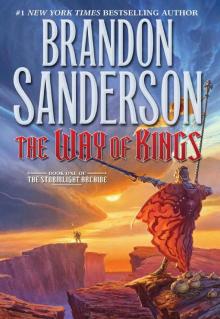 The Way of Kings (Stormlight Archive, The)
The Way of Kings (Stormlight Archive, The)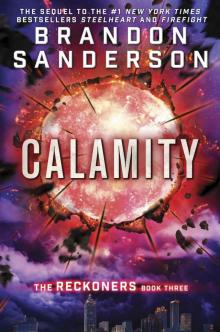 Calamity (The Reckoners)
Calamity (The Reckoners) Legion and the Emperor's Soul
Legion and the Emperor's Soul Legion: The Many Lives of Stephen Leeds
Legion: The Many Lives of Stephen Leeds The Mistborn Trilogy
The Mistborn Trilogy Bands of Mourning
Bands of Mourning Alcatraz
Alcatraz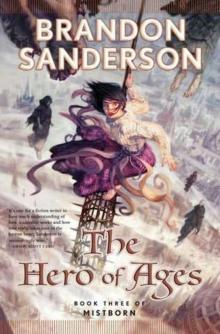 The Hero of Ages m-3
The Hero of Ages m-3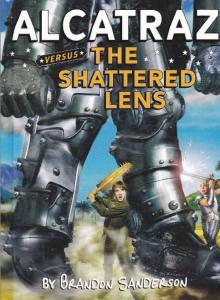 Alcatraz vs. the Shattered Lens
Alcatraz vs. the Shattered Lens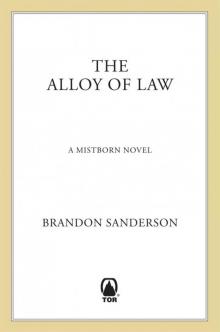 The Alloy of Law: A Mistborn Novel
The Alloy of Law: A Mistborn Novel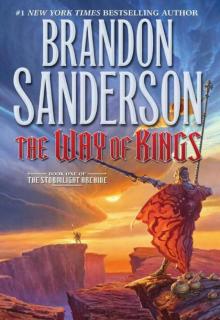 The Way of Kings sa-1
The Way of Kings sa-1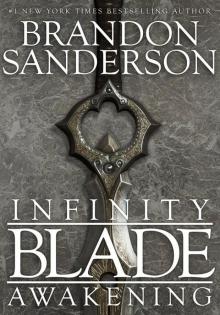 Infinity Blade: Awakening
Infinity Blade: Awakening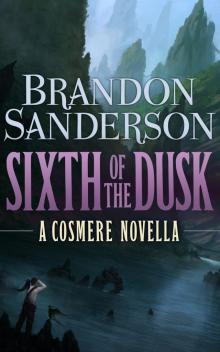 Sixth of the Dusk
Sixth of the Dusk The Stormlight Archive
The Stormlight Archive The Aether of Night
The Aether of Night